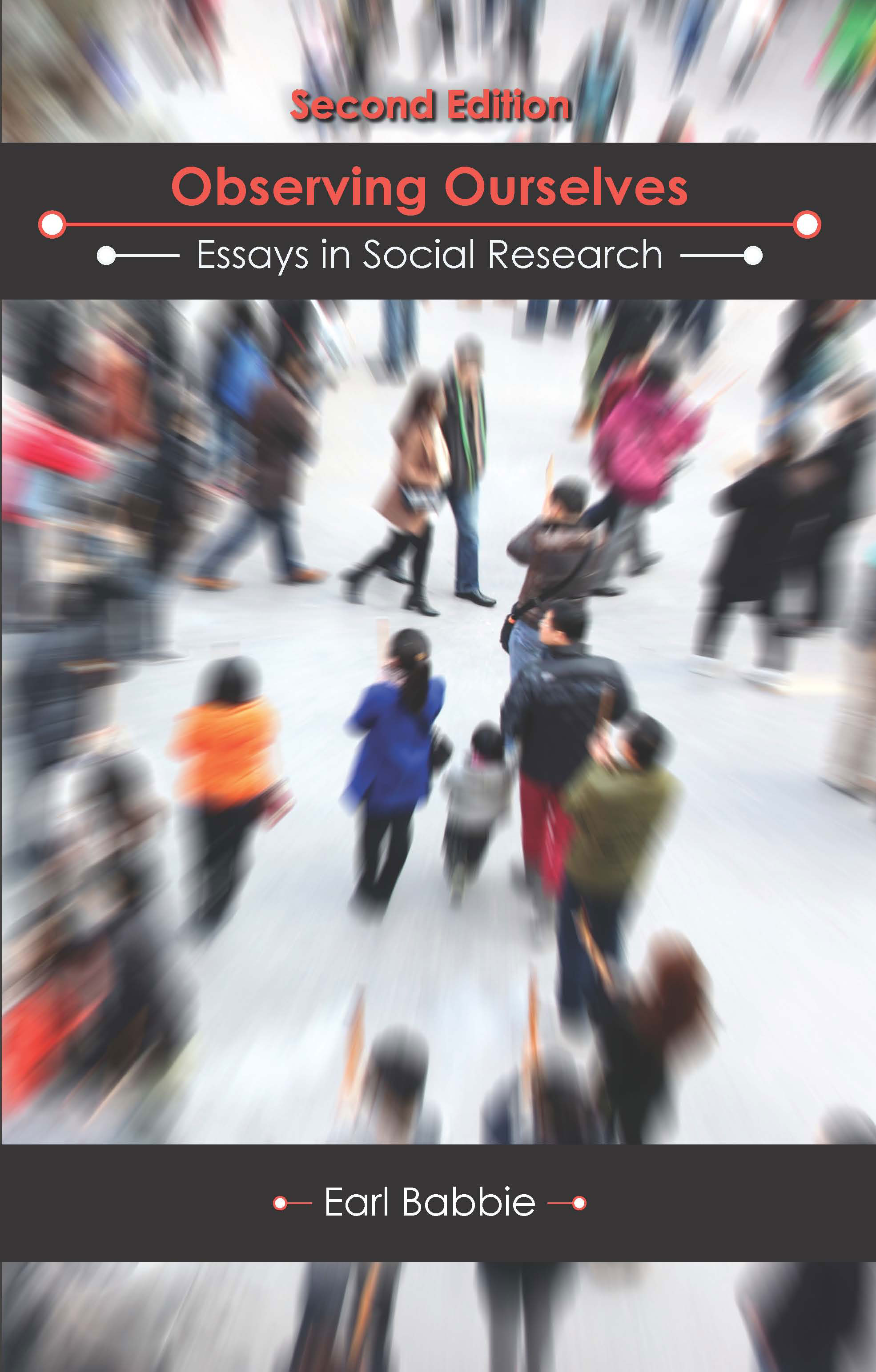
168 pages, $28.95 list
1-4786-2201-6
978-1-4786-2201-7
© 2015
paperback
eBook availability
Observing Ourselves
Essays in Social Research
Second Edition
Is it possible for human beings to study other humans as scientifically as physicists and microbiologists study inorganic matter, cells, and tissue? According to Dr. Babbie, one of the most recognized names in applied sociology, the social scientist must understand more than just the methodology involved in research. Babbie’s conviction that the power of social research lies more in the realm of questions than in the realm of answers prompted him to compose fifteen short essays addressing some of the fundamental philosophical and methodological issues involved in the scientific study of human beings.
Among the topics expertly addressed in this compelling collection are:
• The impact of concepts and indicators on our perception of reality
• The possibility of value-free science
• The impact of the tautologies of truth, reality, and existence on objectivity
• The effect of changing paradigms
• The deterministic paradigm versus the existence of free will
• The impact of the observer on the subjects being researched
• The power of introspection—of observing oneself
Among the topics expertly addressed in this compelling collection are:
• The impact of concepts and indicators on our perception of reality
• The possibility of value-free science
• The impact of the tautologies of truth, reality, and existence on objectivity
• The effect of changing paradigms
• The deterministic paradigm versus the existence of free will
• The impact of the observer on the subjects being researched
• The power of introspection—of observing oneself
Reactions
“I love this book and use it in most classes.” — Judy Porter, Rochester Institute of Technology
Part 1: An Introduction to Inquiry
1. Closed Answers and Open Questions
2. Truth, Objectivity, and Agreement
3. Paradigms
Part 2: The Structuring of Inquiry
4. Determinism versus Freedom
5. Concepts, Indicators, and Reality
6. Making Distinctions
Part 3: Modes of Observation
7. Quantitative or Qualitative?
8. The Impact of the Observer
9. The Power of Introspection
Part 4: Analysis of Data
10. Finding Patterns
11. Probability and Causation
12. Critical Thinking
Part 5: The Social Context of Research
13. Scientific Closed-Mindedness
14. Value-Free Science?
15. The First Science
1. Closed Answers and Open Questions
2. Truth, Objectivity, and Agreement
3. Paradigms
Part 2: The Structuring of Inquiry
4. Determinism versus Freedom
5. Concepts, Indicators, and Reality
6. Making Distinctions
Part 3: Modes of Observation
7. Quantitative or Qualitative?
8. The Impact of the Observer
9. The Power of Introspection
Part 4: Analysis of Data
10. Finding Patterns
11. Probability and Causation
12. Critical Thinking
Part 5: The Social Context of Research
13. Scientific Closed-Mindedness
14. Value-Free Science?
15. The First Science